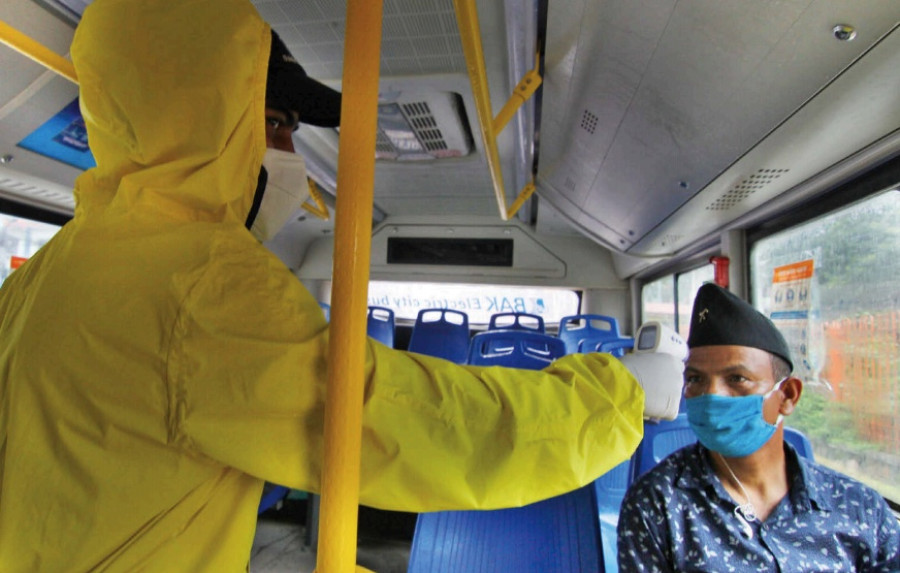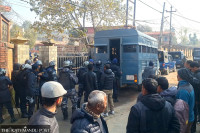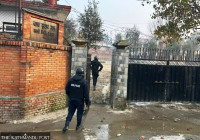Valley
Federation halts public transport, but some private companies resume service in Kathmandu Valley
Private companies that have started operating buses accuse the transport federation for trying to restore syndicate in the sector.
Anup Ojha
At a time when the Federation of Nepalese National Entrepreneurs has rejected the government’s decision last week to resume public transport services, a few private companies have started operating services in Kathmandu following health precautions for their staff and passengers.
Sundar Yatayat Private Limited, the first company to roll out electric buses for public transport in Kathmandu last year, has started operating four buses, contrary to the federation’s defiance.
“Our concern is public [service]. From Tuesday, we have resumed our services applying full safety measures,” said Sarita Yogi, who heads the Sundar Yatayat’s administration.
The Yatayat provides free masks for elderly passengers, and has managed protective clothing for drivers and their helpers. Passengers’ body temperature is taken with a thermal gun and passengers are asked to sanitise their hands before boarding a bus. The Yatayat is ferrying passengers on the Ring Road and to Bhaktapur. According to Yogi, buses are disinfected after every round trip.
The company has decided not to charge passengers extra even as the government mandated up to 50 percent additional fares as it announced its plan last week. “We are going to stick to the earlier bus fare. This is a difficult time, and we don’t want to charge the already troubled people more,” said Yogi.
Meanwhile, Mayur Yatayat, the company that challenged the public transport cartel by serving on the Kathmandu-Banepa route in 2018, has also rejected the entrepreneurs’ decision to keep buses off the road. Mayur has started operating seven buses on the Ring Road and also to Sanga, Kavre.
“This is no time to do politics; it’s a time to serve the people, who are facing hard times in the lack of proper mobility,” said Mohan Shrestha, chairperson of Mayur Yatayat. “But the federation is trying to restore their cartel in public transport. We are against such unhealthy competition.”
The government on May, 2018 announced an end to the transport syndicate. The Ministry of Physical Infrastructure and Transport had made the announcement after reaching an agreement with transport entrepreneurs.
The federation has demanded that the government offer a tax waiver, enforce safety measures on board public vehicles and direct banks to restructure the repayment of loans by transport companies.
“Some of their demands are genuine but they are looking for a chance to re-establish their syndicates. We are not going to tolerate it,” said Shrestha. “We are here to serve the public, not to bargain in such difficult times.”
Shrestha said all the 44 big buses of Mayur Yatayat will be operated by this week, as they are undergoing repairs.
Meanwhile, Sajha Yatayat also plans to operate its 30 buses from Thursday following the government’s safety guidelines. “The government should have taken a lead in transforming the public transport system in these four months, but it didn’t,” said Bhusan Tuladhar, executive director at Sajha Yatayat.
“We want to see the public transportation sector prosper and be more people-oriented, and we are working on that,” said Tuladhar. Sajha has a total of 67 large buses in its fleet, and it is preparing to operate all of them gradually. However, Thuadhar criticised the government for not preparing comprehensive health guidelines.
“The government says vehicles should be disinfected but it does not specify which chemicals should be used. It has failed to play a leadership role,” said Tuladhar.




 20.12°C Kathmandu
20.12°C Kathmandu.jpg)












